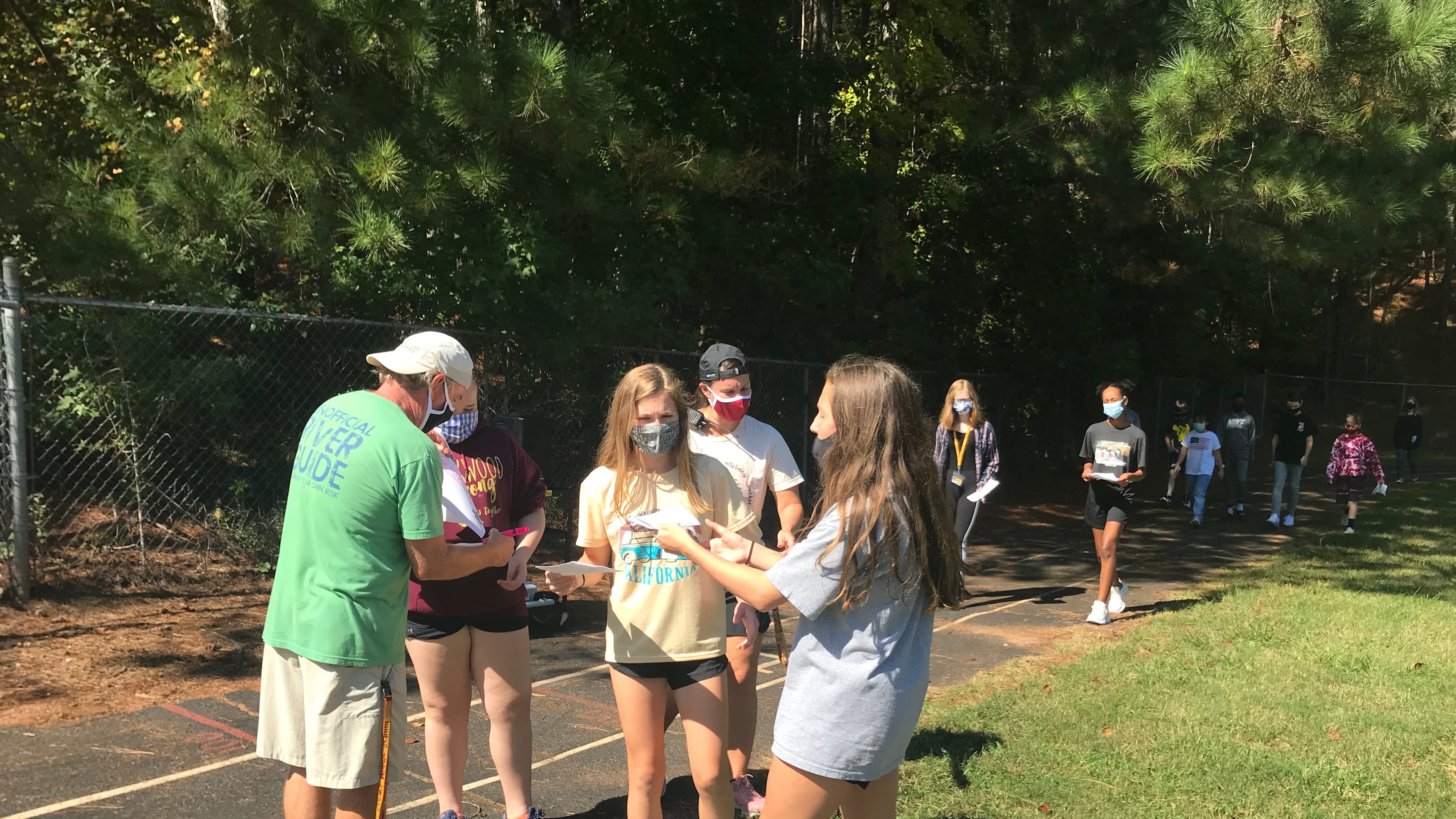Program makes schools “No Place for Hate”

In 1999, following the Columbine High shootings in Colorado and an attack on a Jewish community center in California, the Anti-Defamation League designed a program to help communities and organizations build welcoming and inclusive environments. During the last 20 years, the free No Place for Hate program has grown to include schools as a way to counteract bullying and abuse.
Crews Middle School in Lawrenceville has been part of the No Place for Hate campaign for seven years, and its cornerstone of offering students a safe place to have candid conversations is in need more now than ever, said seventh-grade counselor Helen Cox.
“We’ve had some Zoom bombings where kids come in and say inappropriate things, social media is pretty intense, and kids are aware that there’s tension and a lack of civility,” said Cox. “Students see that people don’t speak to each other with respect. No Place for Hate provides a place for kids to talk about what they’re experiencing, and that can empower them.”
The program at the 1,400-student school offers that safe space in several ways. During the last school year, it included a No Place for Hate week with daily activities from “No One Eats Alone” day in the cafeteria with games and socializing. During the summer, group members and rising fifth graders attended an academy that focused on identity, respect and leadership skills. Those students then took the lead on organizing two monthly meetings.
Two weeks ago, Crews kids participated in a “Walk Against Hate” that started with a brief lesson on self-respect, identities and inclusion, as well as tactics for stopping an inappropriate joke or a mean-spirited comment. They then walked 3 miles with a buddy and changed partners throughout the hike to get to know other people better. Before election day, students will be invited to sign a resolution on respect.
“Students are more open to talking about race and identities this year,” said Cox. “It’s resonating differently when students have struggled with losing family members to COVID and feeling isolated. These programs provide a safe space for them to be themselves, where they don’t have to censor themselves.”
Those activities keep the school’s No Place for Hate certification in place. The requirement is that participants host three events during the year that touch every student. Schools can tap into resources and programs provided by the League, including a 45-minute video offering step-by-step guidelines on how to implement the program and activities.
“We’re always trying to adapt and update No Place for Hate to ensure we’re having the greatest impacts in our schools,” said Erin Beacham, ADL’s deputy regional director based in Buckhead. “But it’s up to the individual schools to decide what activities they want to build on each year. If something is happening in their community, they can pivot to address that. That’s why this program has been so successful: It has the ability to adapt to work on what’s most impactful for them.”
ADL’s Southeast region of Georgia, Alabama, South Carolina and Tennessee has 254 participating schools, a number that has grown 15% in the last year.
“That’s pretty incredible given they were finishing the school year virtually,” said Beacham. “It also says schools are looking to get involved and do positive things.”
Schools interested in participating for the current year should register by Oct. 28 at atlanta.adl.org/npfh.
SEND US YOUR STORIES. Each week we look at programs, projects and successful endeavors at area schools, from pre-K to grad school. To suggest a story, contact H.M. Cauley at hm_cauley@yahoo.com or 770-744-3042.
